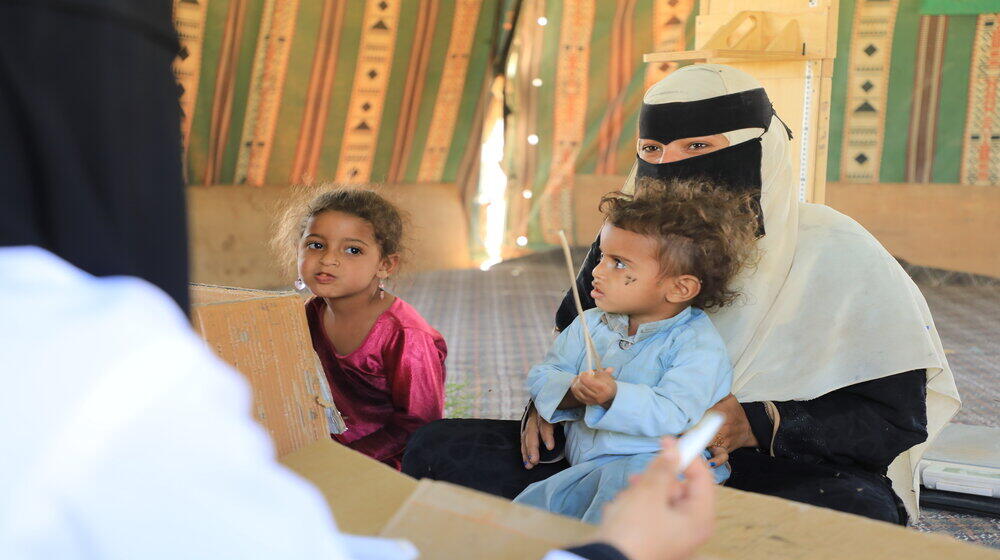New York/Geneva, 27 February 2023 – As governments meet in Geneva to raise funds for the ongoing humanitarian crisis in Yemen, UNFPA, the United Nations sexual and reproductive health agency, urgently reminds the world of the catastrophic impact eight years of war has had on women and girls. With 12.6 million women in need of lifesaving reproductive health and protection services, UNFPA is appealing for US$70 million to sustain these programmes for women and girls.
The war has decimated the national health system in Yemen, with buildings and equipment destroyed and health workers left unpaid. Yemen has one of the highest maternal death rates in the region, with less than half of births being assisted by skilled medical personnel and only one in five of the health facilities that remain providing maternal and child health services. UNFPA is the sole provider of essential life-saving reproductive health medicines in the country and plays a leading role in delivering women’s reproductive health and protection services. But 93 health facilities will be forced to close if UNFPA’s fundraising targets are not met.
“The war in Yemen has left utter devastation in its wake, with stark consequences for women and girls” said UNFPA Executive Director Dr. Natalia Kanem. “UNFPA’s priority is to safeguard and restore access to the life-saving reproductive health and protection services women and girls so desperately need.”
Women and girls in Yemen also face high rates of gender-based violence and nearly two thirds of girls in Yemen are married before age 18. Yet services to support survivors are extremely limited or completely absent. UNFPA provides critical protection services for women and girls, with an emphasis on prevention and response to different forms of violence.
Yemen’s crisis for women and girls in numbers
- One woman dies in childbirth every two hours in Yemen from causes that are usually preventable.
- 5.5 million women and girls of childbearing age need reproductive health services.
- 1.5 million pregnant and breastfeeding women are acutely malnourished.
- 7.1 million women require urgent access to gender-based violence services.
- Three quarters of the 4.5 million displaced people in Yemen are women and children, most of whom have been displaced multiple times.
The devastating cost of inaction
Lack of funding in 2023 will force UNFPA to scale back lifesaving services further with grave consequences. Thousands of women could lose access to reproductive healthcare facilities and more than a million women could lose access to gender-based violence services and mental health care.
“The health, safety and dignity of Yemeni women and girls hang in the balance. We need to act now to save lives, provide the essential support so urgently needed and offer a chance at a better future,” continued Dr. Kanem.
UNFPA in Yemen
In 2022, UNFPA reached over 2.7 million women and girls with reproductive health and protection services. An additional 400,000 newly displaced people received life-saving emergency relief through the rapid response mechanism that UNFPA leads in partnership with UNICEF and WFP. The rapid response mechanism provides a package of life-saving assistance for new displaced people on the move.
Resources for journalists
- Photos are available on UNFPA’s response in Yemen.
Please note the metadata and credit details for the photos are included in two separate spreadsheets in this folder. - UNFPA spokespeople are available for interview.
UNFPA media contacts
- New York: Eddie Wright, ewright@unfpa.org; +1 917 831 2074
- Cairo: Samir Aldarabi, aldarabi@unfpa.org; +20 106 8484879
- Yemen: Lankani Sikurajapathy, sikurajapathy@unfpa.org; +94773411614


